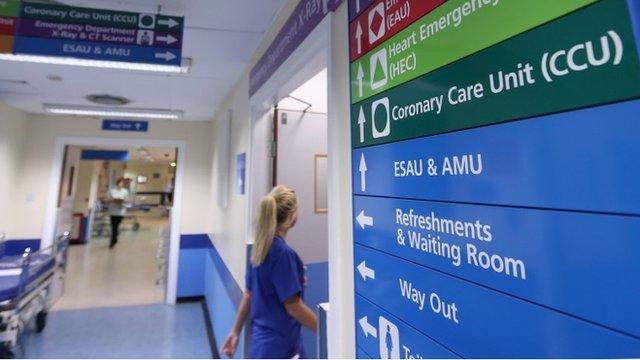NI hospital pressures 'like never before', says trust director
- Published
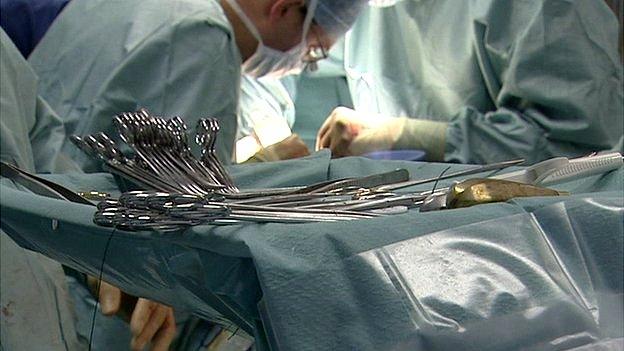
All five Northern Ireland health trusts have cancelled some non-urgent elective operations
A medical director at a health trust has said he has never before seen the kind of pressures that Northern Ireland's hospitals are facing.
All of Northern Ireland's five trusts have cancelled some non-urgent elective surgeries.
It is one of the measures put in place in order to tackle demands on the emergency system.
The Department of Health said the minister, Jim Wells, was "aware of the increased pressures across the system".
The Belfast Health Trust has cancelled all non-urgent elective surgery up to and including 11 January.
Ken Lowry, the medical director at the Northern Trust, said: "We do not set out to disturb people's plans.
"Unfortunately, no one saw the level of activity across Northern Ireland coming to the extent it has over the past three or four days. I don't think you could blame anyone for that.
"We had planned for the normal anticipated upturn that happens every year but, what we are seeing here is something we have never seen before."
'Under pressure'
Medical director of the Western Health Trust Dr Alan McKinney said staff in Altnagelvin Hospital in Londonderry have been under extra pressure.
Eighteen people were waiting for beds on trolleys there on Tuesday night.
"The winter pressure of new admissions does cause problems but the flow of patients coming in is faster than those going out," he said.
"There is pressure on staff in the accident and emergency department but also in other medical wards.
"We had to delay patients who need non-urgent procedures and open our day case spaces to deal with the overflow.
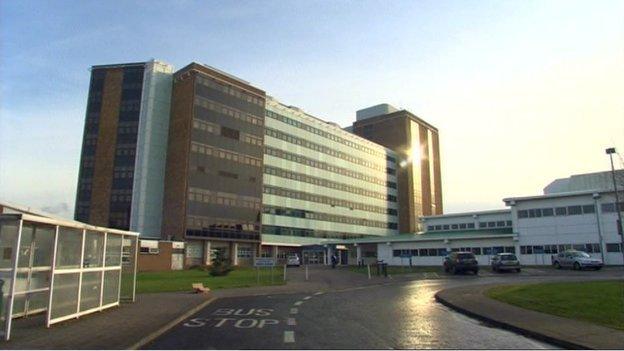
Dr Alan McKinney has asked people to avoid A&E if they do not need the services
"Wards have also been taking extra patients and we have also been putting more patients in rehab spaces.
"We are also trying to get packages of care in the community in place.
"Even with those contingencies in place, we are still under pressure."
Cutbacks
A Derry woman, who has been in Altnagelvin Hospital since Sunday, told the BBC that "management is running around trying to deal with the situation".
"I came in with severe abdominal pains on Sunday. I eventually was looked at after waiting a couple of hours.
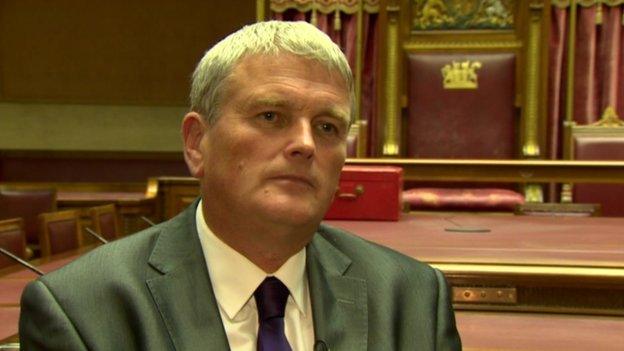
Health Minister Jim Wells tweeted that he was grateful for the hard work of staff
"The staff were more than good but were constantly apologising about having no beds.
"They put me in the day case unit and that's where I'm still at. They said it was because of the lack of beds.
"Staff are being pulled from ward to ward. Bed managers are constantly walking about. It's very evident there is a problem."
Garret Martin, deputy director of the Royal College of Nursing, said: "Our members are facing a lot of pressure.
"You do see an increase in waiting times and blockages in the system at this time of the year. This adds to the overall pressures.
"There are issues that are compounded by the financial situation. Discharges are being delayed.
"Frontline staff are doing the best they can but there has to be a better way."
Waiting time breaches
In a tweet on Tuesday night, Mr Wells said: "I am so grateful for the dedication and hard work of all the staff who are under huge pressure in our hospitals."
In a statement, the Department of Health said: "Emergency Departments across the British Isles are currently facing pressures with major incidents called in England and unprecedented numbers waiting for admission to a bed in the Irish Republic.
"The regional unscheduled care task group has been set the clear aim of eliminating all avoidable 12-hour emergency department waiting time breaches and of making significant progress towards achieving the four-hour waiting time standard.
"However, this is an issue that doesn't just concern emergency departments. It's about ensuring the whole system works together to support patient care, this includes GPs, ambulance service, community care teams as well as those staff who work in acute hospitals.
"In tandem with all of this, it is of crucial importance that people use urgent and emergency care services appropriately to avoid adding pressure on to an already busy system."
- Published7 January 2015
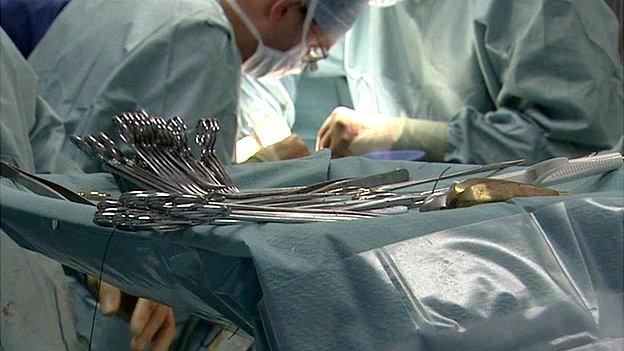
- Published30 October 2014
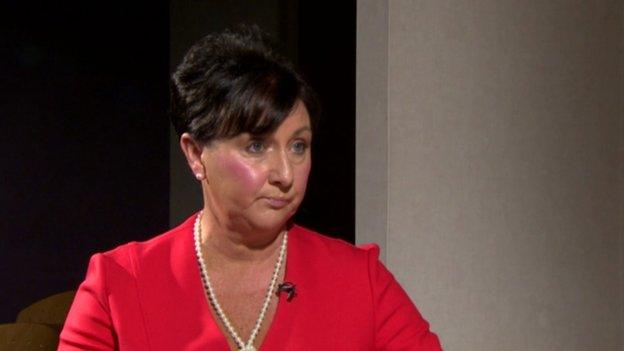
- Published30 October 2014
